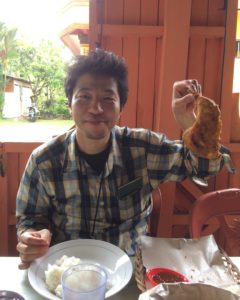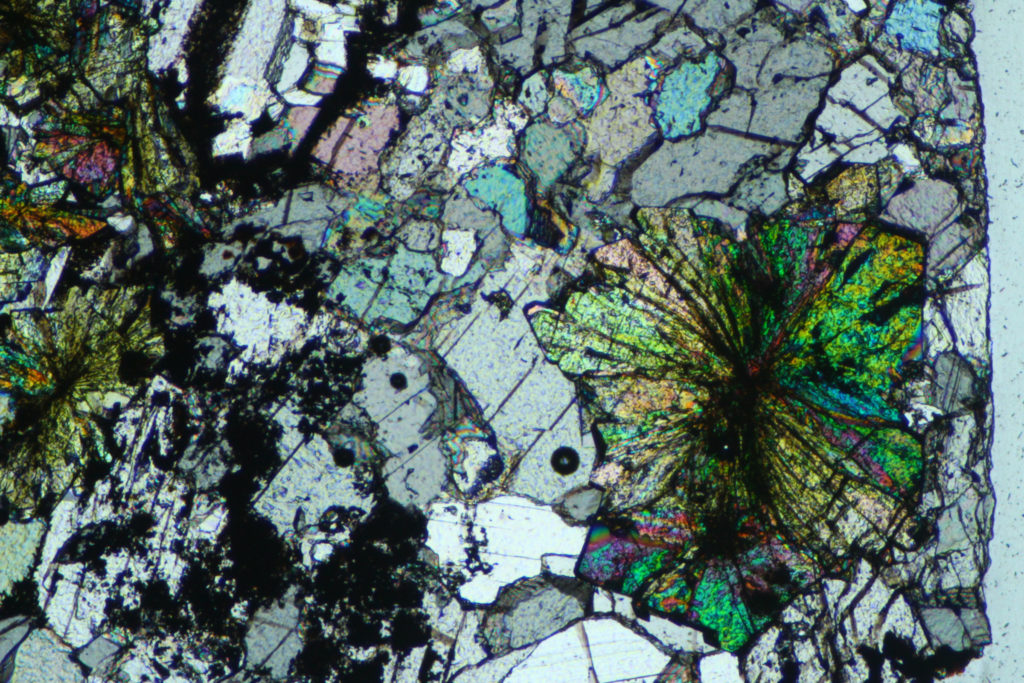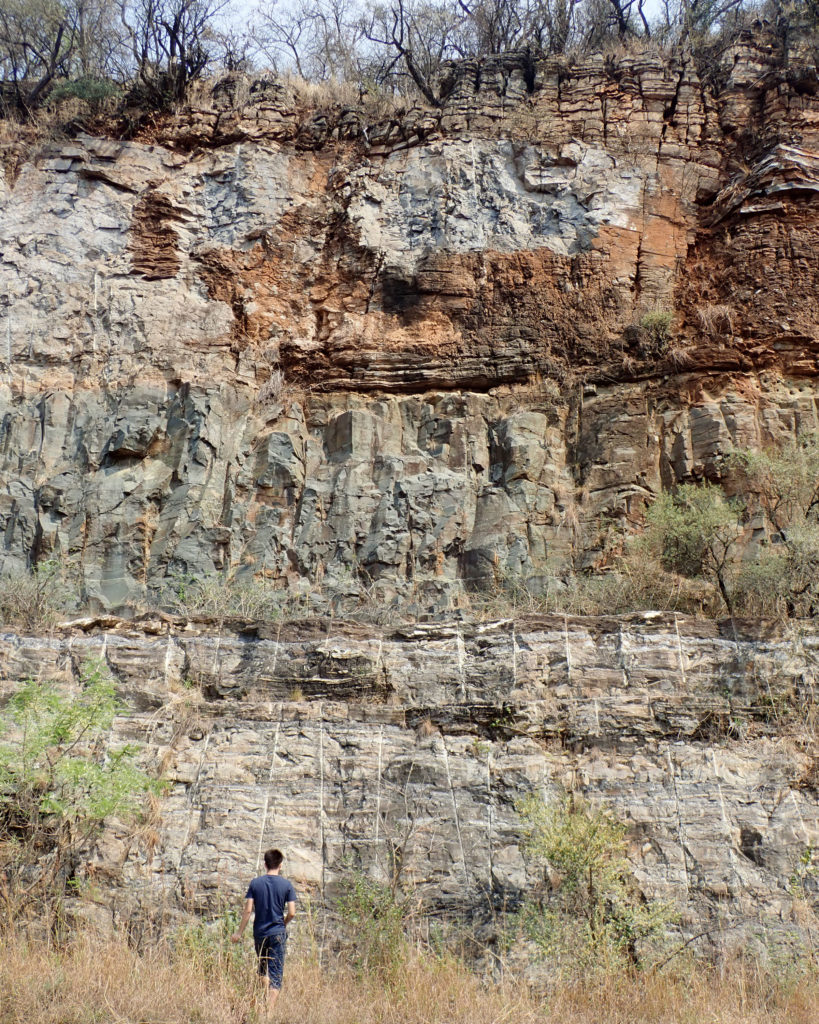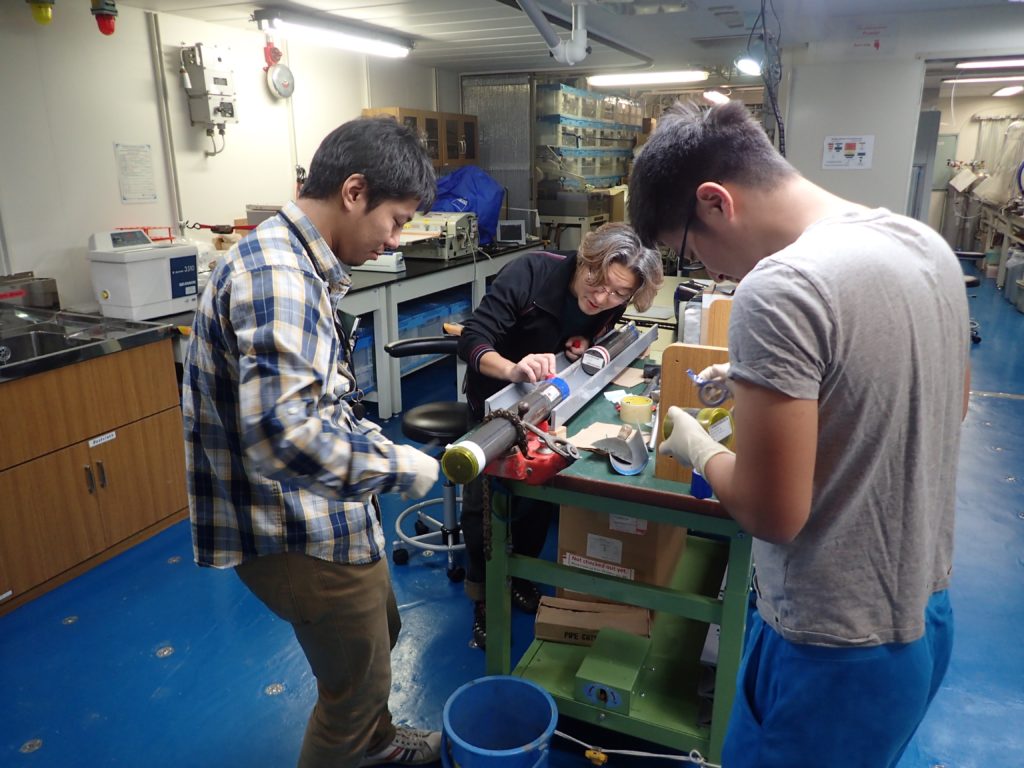Spotlight on Research: What we need to know to sustain our natural resources
Research Highlight | June 12, 2019
During one of his field trips, Associate Professor Tsubasa Otake stepped into the elevator of a gold mine in South Africa. As the doors closed in front of him, he was descended into a narrow cavity with great speed about 3,000 meters deep, something impossible in Japan.
Most of Dr. Otake’s research samples are taken abroad, in countries such as Indonesia, Myanmar, South Africa, and Malawi. The latter two countries in particular are rich in rare earth elements and metals, including gold, platinum, and chromium, making them ideal places to study geological processes and commence mining operations.
The mining industry is thriving in many developing countries, with deposits in countries such as Japan being, for the most part, already depleted. This means that personnel from Japan need to become and stay involved in mining operations to ensure the sustainable supply of minerals and elements to the country. But what about the sustainability of the resources themselves?
As a part of the Division of Sustainable Resources Engineering within the Faculty of Engineering, Dr. Otake studies natural resources, specifically their geological processes, with the hope that a better understanding of these processes could minimize or even avoid harm to the environment.
“We used to mine here in Japan, and we had many environmental issues,” he elaborated. “We need to help develop mines in developing countries that can mitigate these issues, and we can do this by looking to the environment directly.”
Dr. Otake studies how toxic materials, such as arsenic and sulfur, behave in natural environments to create new ways to sort, handle, and perhaps eventually avoid the creation of, waste and harmful elements.
“Natural systems already have a buffering capacity for avoiding damages from toxic elements. If we figure out how these systems are happening, we can use similar methods to address the problem of waste.”
In addition to this, he also researches how elements cycle on the earth. “By learning more about how natural resources evolve, we can better grasp ways to sustainably utilize them,” he added.
The rock cycle is a system which explains how rocks change their composition and location over time. It is powered by many natural forces such as plate tectonics and subduction zones, for example. According to Dr. Otake, no one really knows why minerals are unevenly distributed across the planet. Understanding the rock cycle can not only help explain this but it can also help mining companies implement their operations more efficiently.
An important resource for Dr. Otake’s research is chromium, commonly known as chrome. Chromium is used for stainless steel appliances, including cutlery and medical tools, as well as for pigments, high-performance alloys, plating…the list goes on.
It can be easily found in South Africa, but scientists, including Dr. Otake, are also turning to the deep sea for answers. By drilling into the sea floor 1,500 meters deep in Japanese waters, Dr. Otake has been able to successfully extract rock core samples for his research.
Through isotopic analyses, Dr. Otake is able to see where his Chromium samples have come from and what processes they have undergone. This is thanks to the sensitivity of the element; Chromium is known to be particularly reactive its surrounding atmosphere.
“You can pick up two rocks that look the same, but actually they’re likely very different because of the processes they’ve undergone,” Dr. Otake explained. “I want to know exactly why and how. These are important questions to ask when thinking about the sustainability of our natural resources.”
From platinum in catalytic converters preventing toxic gas from being expelled into the air to the production and daily use of Nickle batteries, metals are essential in our everyday lives and for industries. Even now we continue to discover new aspects about these elements, discoveries which can help us ensure the sustainability of our lifestyles and of the environment.
Researcher details:
Associate Professor Tsubasa Otake
Faculty of Engineering
Hokkaido University
totake@eng.hokudai.ac.jp
Author: Dr. Katrina-Kay Alaimo




